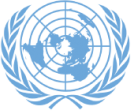The youth of today's world is the largest generation in the whole history of mankind is, numbering up to 2 billion people. It is these young people who will determine the future of our planet.
Today, the young people reach their physical and socialmaturity earlier; they are distinguished by higher expectations and ambitions about themselves and those societies in which they live. Youth is a locomotive of social progress, itsactivities affect directly on the countries’ sustainability.
Along with this, under the influence of social, political, economic and other problems, the certain radical views andbeliefscan be formed more easily among the young people, especially in itsvulnerable part. As statistics show, most of the crimes related to extremism and violence, are committed by young peopleless than 30 years of age, including minors.
For that reason, the youth issues are the first priority in the whole world. The UN, the OSCE and the EU have developed a number of importantdocuments defining the program of multilateral cooperationin this field.
Collaborative understanding of the youth policy objectives, sharingof experience andthe development of common positions in this area was devoted to the internationalconference on “The Role of Youth in Preventing and Countering Violent Extremism and Radicalization Leading to Terrorism”, which took place on June 11-12, 2018 intwo cities - Tashkent andSamarkand under the auspices of the OSCE.
The conference was attended by the experts and specialists from 22States - representatives of governments, parliaments, institutions, civil societies, youth organizations, as well as the international organizations such as the UN, the OSCE and the European Union.During the conference, a fruitful exchange of views took place on the following issues:
- legal and political bases of prevention and counteraction of violent extremism and radicalization leading to terrorismamong young people, international and national efforts in this direction;
- cooperation of the state and civil society incountering violent extremism and terrorism;
- today’s challenges and the role of youth organizations in preventing violent extremism and terrorism;
- the prevention of violent extremism in the Internet and media;
- comprehensive approach to preventing and counteracting the spread of violent extremism and terrorism among youth;
- Uzbekistan's experience in counteraction and prevention of violent extremism and terrorism, which includes measureson deepening the democratic, judicial-legal and economic reforms, development of civil society institutions and encouraging the prestigeof education.
The participants of the conference noted that in order to achieve the goals of sustainable development andbuilding of an inclusive and prosperous world, the Governments, parliaments and international organizations should adopt an active youth policy, increasing the role of young people in decision-making process both at local andinternational levels.
Based on the results of the discussion, the Conference reached the following main conclusions:
1. Counteracting the spread of ideology of violent extremism among young people and its radicalization should include the system of institutional, legal, political, socio-economic and information measures, to absorb the genuinedemocratic reforms, guarantee for the protection of human rights, economicliberalization, provision of decent education;
2. Work with young people should be central to theactivities of governments, parliaments, international organizations. At the same time, the most important task is to ensure all conditions forself-realization of youth, its education and training, formation of its tolerant consciousness and behavior;
3. Effective response to the problems of violentextremism and terrorism should not be based onpower methods only. Implementation of preventive mechanisms and proactive steps are muchmore effective measures to neutralize the growing challenges of violent extremism and terrorism;
4. No State can stand aloneagainst violent extremism and terrorism. Actually, these transnational threats to peace and stability need to be countered with the adequate multilateral efforts and intensified international cooperation in the sphere of counteracting the radicalization of youth leading to terrorism;
5. In this context, it is important to develop internationalstandards of youth policy, multilateral cooperationin the sphere of social support of the younger generation, protection of their rights andinterests. In this regard, the initiative of the Republicof Uzbekistan on the adoption of the UN International Convention on the Rights of Youth is very important;
6. Youth organizations should play an active role in theimplementation of youth policy. It is necessary to create sustainablemechanisms for their involvement in the decision-making process and implementation of these decisions at all levels, including the international. It is also important to expand the rights andopportunities of young people, to increase its legal literacy and social activity, facilitate their employment;
7. Proceeding from the fact that Central Asia and adjacent regionsare among the "youngest" (regarding population) in the world, it is necessary to strengthencooperation between the countries located in this region. It is advisableto organize Youth Forums of Central Asian countries as a platform for interaction and exchange of experience in the sphere of counteraction to influence ofradical groups, to conduct joint cultural, sportsevents, as well as business forums;
8. Terrorism and violent extremism can notbe associated with a particular religion. Ourjoint objective is toreachtolerance and harmony between beliefs as well as to fight against stereotypes, preconception and prejudice.
Samarkand,
June 12, 2018


